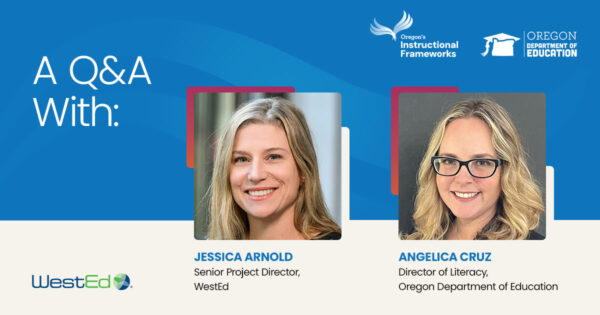Despite decades of advocacy, students with disabilities often face gaps in educational outcomes.
In this recorded webinar, explore how to design supportive, coherent, and effective assessment systems that support positive outcomes for students with disabilities. It provides information about evidence-based strategies and practical tools that help ensure assessments are aligned with curricula, standards, and your district goals and help drive meaningful learning for all learners.
Session Topics
- Foster a culture of belonging and high expectation for students with disabilities
- Dismantle structural barriers that separate assessment in special and general education contexts
- Promote effective data use practices that support learning
- Address assessment systemically and prioritize the needs of students with disabilities
Resources From the Session
- Key Characteristics of a Coherent and Effective Local Assessment System (PDF)
- Leading Inclusive, Coherent, and Effective Assessment Systems: Closing Opportunity and Outcome Gaps for Students With Disabilities (PDF)
- Comprehensive Assessment Solutions (Website)
- Assessment for Learning (PDF)
Featured Speakers

Jessica Arnold
Arnold partners with state and local education agencies to enhance teaching and learning. As an expert in educator assessment and data literacy, she leads professional learning and resource development projects that support effective use of assessments to improve student outcomes. Arnold has contributed to national centers for improving outcomes for people with disabilities, including the National Center for Systemic Improvement, the National Center for Educational Outcomes, and the National Deaf Center.

Elizabeth Zagata
Zagata, a former special education teacher and OSEP scholar, is dedicated to enhancing educational outcomes for students with disabilities. Her research centers on literacy, assessment, and special education policy and law. Currently, Zagata leads the Effective Instruction priority areas for the National Center for Systemic Improvement. She holds certifications in special education, elementary education, and gifted education, and she serves as an adjunct faculty member teaching diagnostic assessment and special education law.






